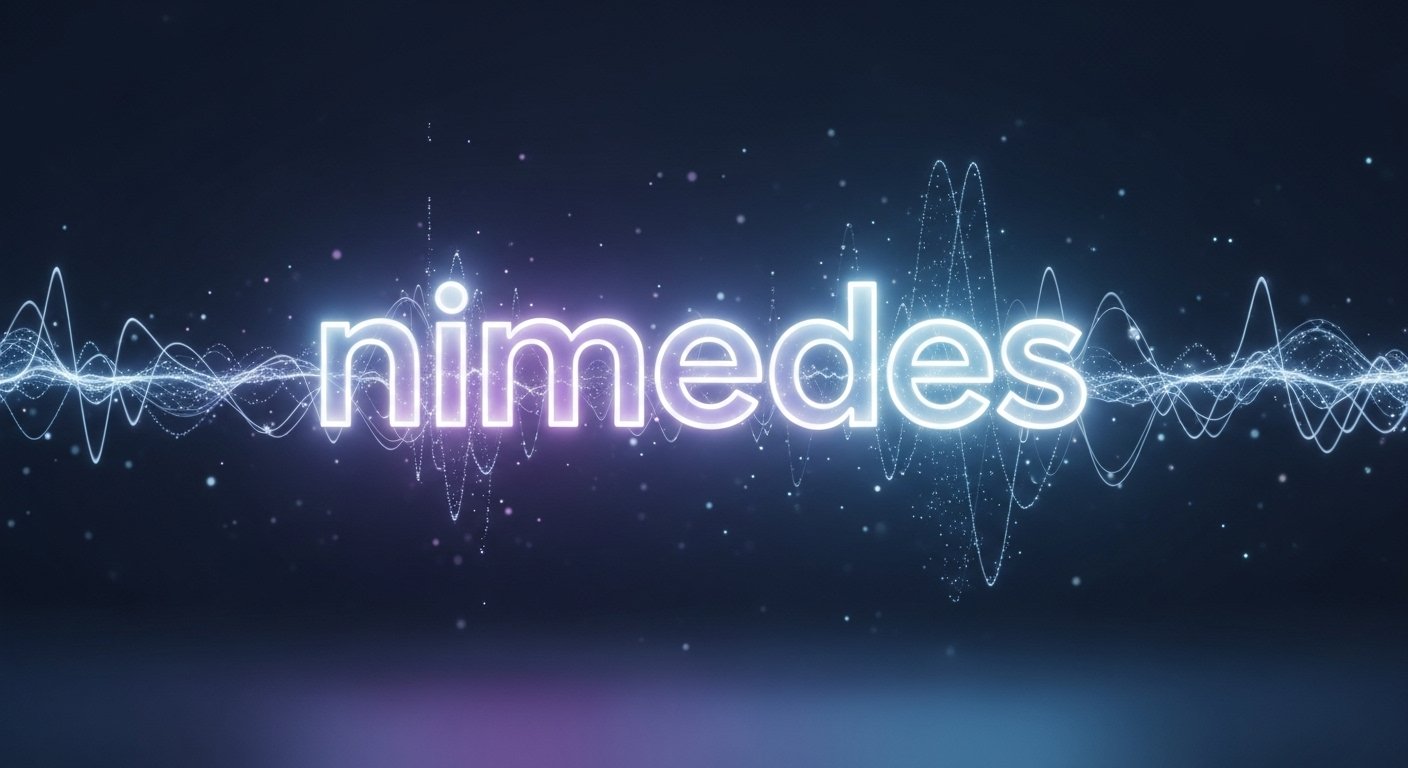The Rise of a Word That Refuses to Be Ignored
Every so often, a new name appears online — unfamiliar, striking, and strangely magnetic. It doesn’t come from a brand or a company, nor does it fit into existing categories. It simply appears, carried by curiosity and repetition until it finds a life of its own. That’s the story of nimedes, a term that’s been quietly spreading across digital platforms and communities, sparking questions and fascination wherever it surfaces.
At first glance, nimedes looks like a fictional name — something that belongs in a story or a digital game. But beneath that surface lies a deeper phenomenon: the way language evolves in the digital age. Nimedes isn’t just a word; it’s a reflection of how creativity, anonymity, and individuality merge in online culture.
People are drawn to it not because they understand it, but because they feel it. The mystery surrounding nimedes gives it power — the power to represent whatever the user wants it to be.
The Meaning and Mystery of Nimedes
The beauty of nimedes lies in its ambiguity. It has no fixed definition, which allows it to become something entirely personal for each person who encounters it. Some interpret it as a username, others as an artistic alias, and some even treat it as a philosophical idea — a symbol of identity that cannot be pinned down.
In many ways, nimedes encapsulates what it means to live online in the 21st century. We create, shape, and share versions of ourselves across platforms, crafting identities that are fluid and dynamic. A single word, especially one as open-ended as nimedes, becomes a digital canvas for that transformation.
The allure comes from not knowing. The unknown invites participation, and that participation gives the word meaning. The internet thrives on such mysteries — fragments that users fill in with their imagination. Nimedes has become one of those fragments, a concept that exists purely through engagement.
You Might Also Like: SFMCompile
How Names Like Nimedes Shape Modern Digital Identity
In the physical world, names carry history and lineage. Online, they carry intention. Choosing a name like nimedes says something about how one wants to be seen — mysterious, creative, and unbound by convention. It’s part of a broader shift in digital identity, where people seek uniqueness not through appearance, but through the words they use to represent themselves.
Usernames, handles, and pseudonyms have become extensions of personality. They’re digital fingerprints, often more recognizable than real names. Nimedes fits perfectly into this ecosystem. It’s distinctive yet approachable, abstract yet memorable — the ideal foundation for a personal brand, creative persona, or community identity.
The fact that no one “owns” nimedes makes it even more powerful. It can belong to anyone, yet feel entirely original each time it’s used. That paradox — shared yet individual — mirrors how identity works in digital culture today.
The Psychology Behind the Appeal of Nimedes
Why do certain names, like nimedes, capture attention while others fade into the background? The answer lies in psychology. Humans are naturally drawn to patterns that feel familiar yet slightly unpredictable. The name nimedes fits that formula — rhythmic, soft, and balanced in sound.
It carries a kind of linguistic harmony. The syllables flow smoothly, suggesting creativity and calmness. It’s neither harsh nor overly complex, making it easy to remember but intriguing enough to provoke thought.
There’s also something emotionally neutral about it. Because it doesn’t evoke a specific meaning, it can adapt to the mood or identity of whoever uses it. Whether it represents art, gaming, writing, or self-expression, nimedes feels right. That emotional flexibility is what gives it staying power.
Nimedes and the Evolution of Digital Language
Language has always evolved through interaction, but the internet has accelerated that process beyond anything in history. New words are born daily — often from memes, usernames, or cultural crossovers. Nimedes is part of this ongoing linguistic evolution.
Unlike traditional words, its meaning isn’t defined by a dictionary. It’s defined by community usage. Each time someone adopts or references it, the word evolves a little more, gaining new shades of meaning.
This is how modern language develops: through participation rather than prescription. Nimedes isn’t a static creation — it’s an evolving digital organism, shaped by the people who use it. And that makes it inherently alive.
Creativity and Ownership in the Age of Nimedes
One of the most fascinating aspects of nimedes is how it redefines ownership in the digital space. Traditionally, meaning and identity were controlled by authors, brands, or institutions. Online, control shifts toward the collective.
When someone uses nimedes as a name or concept, they’re not claiming it as theirs alone — they’re contributing to its ongoing story. Each use adds another chapter, another interpretation. This communal evolution turns language into art, where creativity and collaboration intertwine.
That’s why words like nimedes resonate so deeply. They remind us that creativity online isn’t about control, but connection. It’s about participating in something larger than oneself, shaping it while being shaped by it.
The Role of Mystery in Digital Expression
Part of what makes nimedes so magnetic is the mystery it carries. In a world obsessed with clarity and definition, mystery feels refreshing. It invites curiosity. It encourages exploration.
Mystery engages emotion, and emotion drives memory. When something feels unexplained, we return to it. That’s how nimedes stays alive — not through rigid meaning, but through the intrigue of uncertainty.
This aligns with a broader trend in digital creativity: the shift toward abstract and conceptual expression. People are no longer interested only in what’s literal; they want what’s interpretive. Nimedes stands as a perfect example of this — a symbol that means nothing yet somehow means everything.
Nimedes as a Digital Aesthetic
Beyond sound and meaning, nimedes carries a certain aesthetic presence. It feels modern but not cold, soft but not weak. Visually, the name itself has symmetry — smooth lines and balanced letters that lend it an elegant simplicity.
That aesthetic quality is why it appears across different creative spaces — art, design, gaming, and even minimalist branding. Nimedes fits the visual rhythm of the digital age: clean, mysterious, and adaptable.
In an era where identity and art increasingly overlap, names with aesthetic resonance matter more than ever. Nimedes isn’t just a word; it’s a brandable concept that feels naturally timeless.
The Storytelling Potential of Nimedes
Every word carries a story, and nimedes is an invitation to write one. Its open-endedness makes it perfect for narrative creation. Writers, musicians, and creators can project their own worlds onto it — a character, a movement, or an idea.
That’s why nimedes thrives in creative spaces. It doesn’t dictate meaning; it inspires it. It gives storytellers the freedom to build around it, to make it a part of something larger without limiting its scope.
This capacity for reinvention makes nimedes a rare kind of digital artifact — one that evolves through imagination rather than explanation.
Nimedes and the Future of Online Identity
Digital identity is undergoing a transformation. Where once users aimed for authenticity, now they seek intentional ambiguity — the freedom to exist without being fully defined. Nimedes captures that perfectly.
It’s a word that allows people to express themselves while remaining fluid. It doesn’t tie them to a specific culture, language, or role. Instead, it becomes whatever they need it to be — an alter ego, a brand, or a symbol of creativity.
This fluid identity mirrors the structure of modern online life. People move between communities, interests, and identities seamlessly. Nimedes becomes a bridge between those transitions — a name that adapts as its user does.
How Nimedes Reflects Our Desire for Reinvention
One of the most human instincts is the desire to reinvent ourselves, to start over without losing what makes us unique. Online, that instinct plays out through names, avatars, and creative projects. Nimedes embodies that process.
It represents transformation — not through radical change, but through subtle reinvention. It’s a blank slate with character, a name that invites users to fill it with their evolving story.
In a sense, nimedes is the perfect metaphor for digital freedom. It shows that in the infinite space of the internet, identity isn’t fixed; it’s fluid, expressive, and ever-changing.
The Emotional Dimension of Nimedes
Names have emotional resonance, and nimedes carries one that’s calm yet compelling. It feels balanced, neither aggressive nor fragile. The sound of it evokes curiosity, introspection, and even creativity.
That emotional texture makes it versatile. It can be poetic, futuristic, mysterious, or minimalist — depending on how it’s used. Its neutrality becomes its strength, allowing it to align with any emotional tone or aesthetic direction.
This emotional adaptability is why people remember it. It doesn’t force a feeling; it reflects one back, shaped by context and imagination.
The Linguistic Harmony That Keeps It Memorable
Phonetically, nimedes is constructed in a way that naturally sticks in memory. The alternating consonant-vowel structure gives it rhythm, while the soft “ni” and “de” sounds balance familiarity with freshness.
This kind of structure often appears in successful brand names and literary terms because it feels both intuitive and distinctive. You can say it easily, remember it quickly, and feel something when you do.
That’s the secret of its memorability — not just how it sounds, but how it feels to say it.
You Might Also Like: Schedow
The Cultural Implications of Nimedes
Words like nimedes mark a cultural shift toward linguistic experimentation. They show that people are no longer waiting for official definitions to validate meaning. Instead, they’re creating meaning through use, community, and creativity.
This democratization of language reflects a broader social movement — one that values imagination over authority. Nimedes belongs to everyone precisely because it belongs to no one.
It’s a glimpse into how future generations might communicate: through words born not in institutions, but in shared digital imagination.
What It Ultimately Represents
At its heart, nimedes represents possibility. It stands for creativity without boundaries, identity without permanence, and meaning without definition. It captures the spirit of the internet — unpredictable, collaborative, and endlessly reinventive.
In an age when algorithms try to categorize everything, nimedes reminds us that not everything needs to be explained. Some things are meant to be felt.
And perhaps that’s what makes it powerful. Nimedes doesn’t ask for understanding; it invites interpretation. It’s not a conclusion, but a beginning — a spark for those who believe language is still one of the purest forms of art.
So, as the digital world continues to evolve, nimedes will likely evolve with it — shifting, growing, and adapting with every person who uses it. Whether as a name, a concept, or a creative identity, it will remain what it has always been: a living reflection of human imagination in motion.

